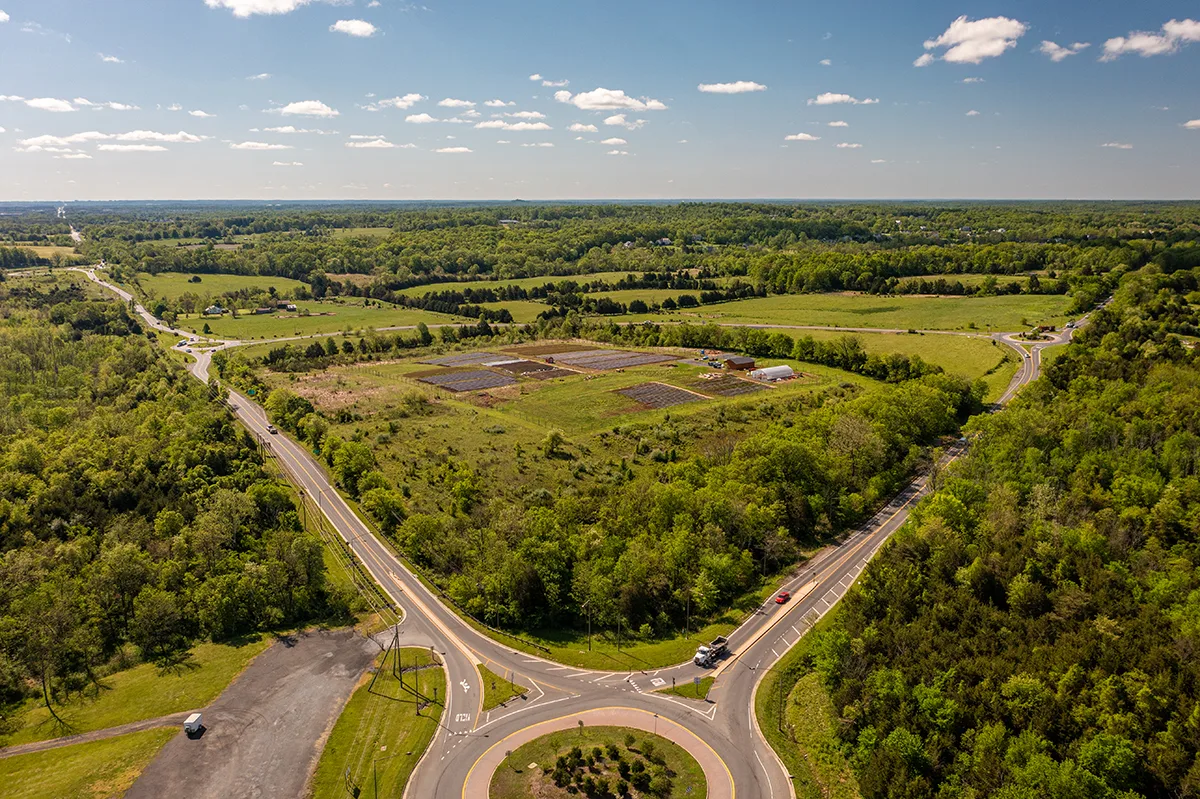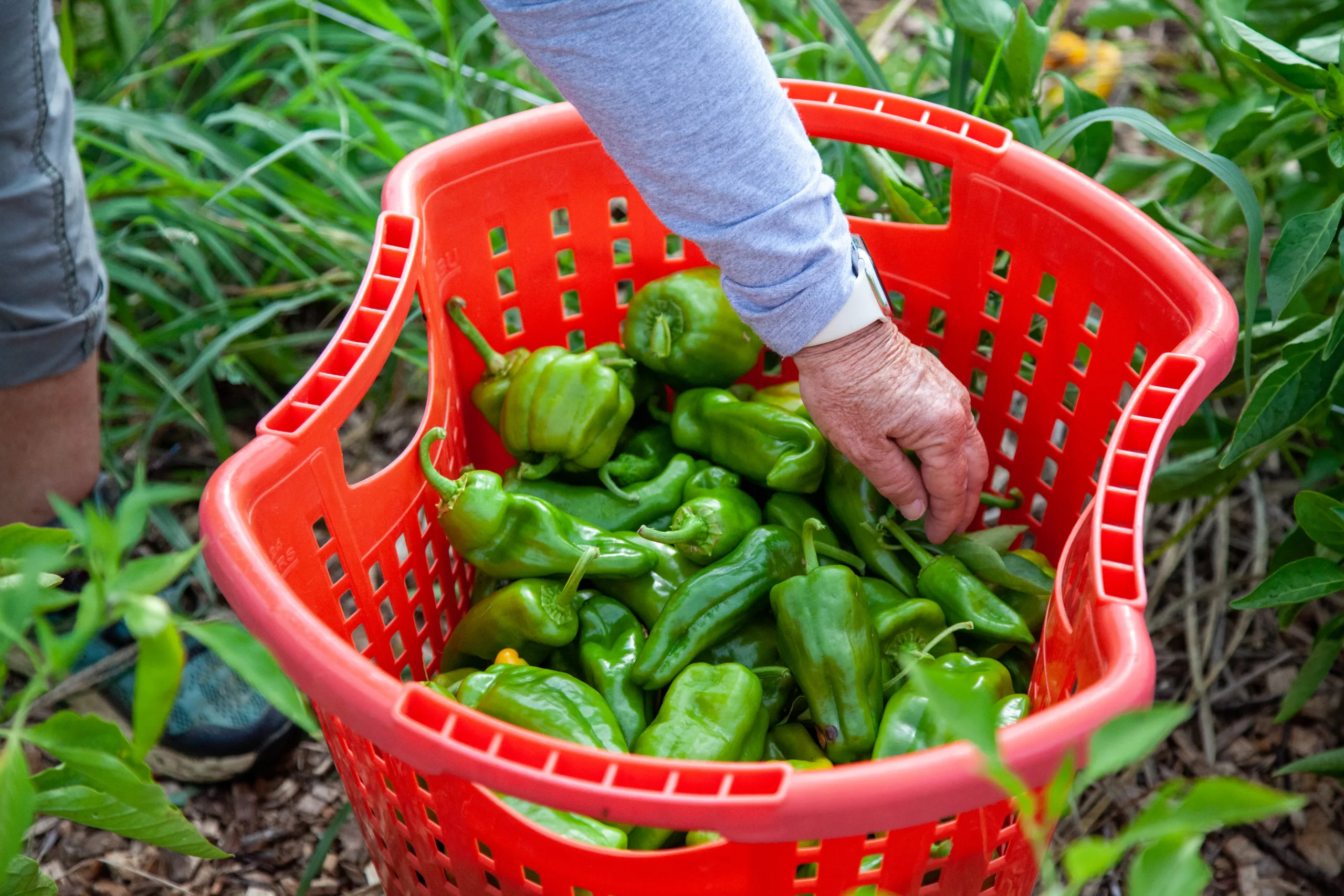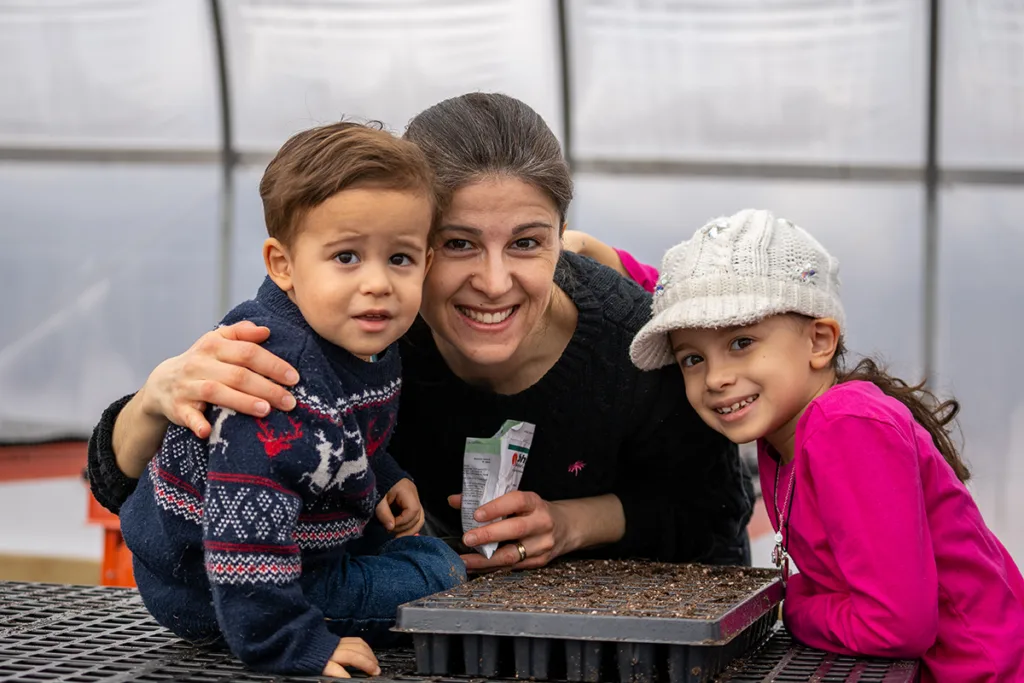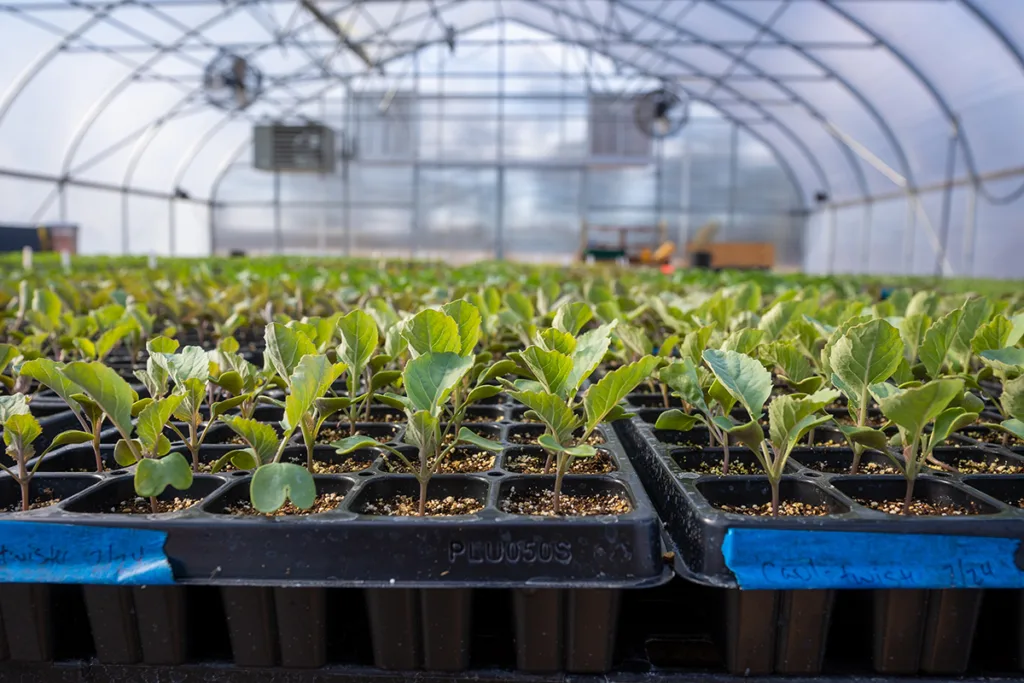As I passed through Ashby Gap on a snowy January morning, gazing out on the patchwork of farms bridging Clarke and Fauquier counties, I turned down the radio to linger on a thought: how do we comprehend the value of this place? Surely there are few who would deny the beauty of this landscape and the immeasurable wealth it holds for our region.
Other drivers heading east are laser-focused on moving swiftly through their commute to suburban and exurban areas that hold a different type of wealth. Passing through historic Upperville, into Middleburg and then Aldie, I worry they miss the thousands of acres of productive farmland that dominate the landscape. Once at PEC’s Community Farm at Gilberts Corner, I met my daily reminder that these farms don’t stretch on forever.

Stepping out of my car with my coat zipped up tight, only my eyes were bare to feel the unmuffled January winds off the west side of this swath of land once planned for strip malls and suburban neighborhoods. In these months when the Community Farm isn’t growing food, my job is to figure out how to do a better job than last year. I’ve been writing, crunching numbers, and planning for the miracle of spring, when this land will come alive with vegetables, visitors and wildlife. Construction sites are silent today, but I hear the echo of rock hammers and delivery trucks in my memory, ingrained into the landscape like the contour lines of last year’s vegetable beds.
If the Route 50 corridor is the gateway to the Piedmont’s rural farm-country, then Gilberts Corner is its welcome sign. Continuing east beyond this landmark, one can’t help but notice the sudden change in population density and
land use. Some may say that rural and suburban communities are often at odds, with seemingly contradictory priorities and values. The reality is that one cannot exist without the other, and forging a path toward a strong and
prosperous future benefits from an appreciation of their interconnection.

From my perspective over at Gilberts Corner, I can look in either direction and see these two very different, but interdependent worlds. I also see how the Community Farm at Roundabout Meadows symbolizes the synergy between suburban and rural communities. More than a place that produces food to feed the hungry, the farm demonstrates the public benefit of conserved farmland easily accessible to local neighborhoods and weaves together suburban and rural Loudoun into a stronger, more sustainable community. Here, we engage hundreds of volunteers every year, eager to support their community’s health by helping us provide fresh vegetables to local food banks. We also host a variety of school groups, helping connect young people with the value of conservation, food, and community service.
It’s also a crossroads, a place for a diversity of conversations about how we can contribute to the health and welfare of our communities. By partnering with organizations like Loudoun Hunger Relief, we get direct feedback from families that receive our produce, which helps guide our crop production. And we engage volunteers in meaningful conversations to build community consensus on what types of volunteer activities are the most empowering.
Not every important conversation takes place at a town hall or committee meeting. Decisions that impact our neighbors are made around dinner tables, in churches, in the supermarket, and sometimes on farms. Listening to one another helps inform the foundation for a shared vision around a more sustainable future. Sustainable growth is fundamentally democratic, because without listening to our neighbors we can never know how our actions might affect the world beyond our perception. As we turn the page to start our sixth season, I invite you out to the Community Farm to be a part of the conversation.
Volunteer at the Farm
Over the past five years, PEC’s Community Farm at Roundabout Meadows has grown and donated over 130,000 pounds of produce for food banks in Loudoun and Clarke counties with the help of over 1,000 volunteers. Our volunteer season runs from the beginning of April through October.


Our volunteers are individuals, families, school and church groups, scouts and clubs, and business groups. Throughout the season, volunteers plant seeds in our greenhouse, transplant seedlings into our fields, care for crops, and harvest a diverse array of fruits and vegetables. Along the way, volunteers learn about the importance of hunger relief programs, sustainable agriculture and stewarding the environment responsibly.
Learn more and sign up to volunteer at pecva.org/farm.
This article appeared in the 2024 spring edition of The Piedmont Environmental Council’s member newsletter, The Piedmont View. If you’d like to become a PEC member or renew your membership, please visit pecva.org/join.
